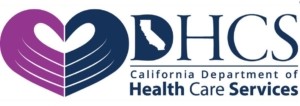What Is Alcoholism?
Table of Contents
Alcoholism, also known as alcohol addiction or alcohol use disorder, affects millions of people in the U.S. and contributes to tens of thousands of deaths every year. Yet, alcohol is a legal substance widely used by those who enjoy its relaxing and euphoric effects. How exactly is alcoholism defined? How do you know if you or a loved one has a drinking problem?
Here’s a closer look at the true definition of alcoholism and how this substance use disorder can be safely and effectively treated at a drug rehab center.
How Is Alcoholism Defined?
MedlinePlus defines alcoholism as a pattern of drinking that causes distress and harm. The National Institute on Alcohol Abuse and Alcoholism (NIAAA) defines alcoholism as “severe problem drinking” and a chronic relapsing brain disease characterized by compulsive drinking, loss of control over alcohol intake, and a negative emotional state when not drinking.
Alcoholism usually develops gradually over time with regular, repeated use of alcohol, or heavy drinking. The CDC defines heavy drinking as 15 drinks or more per week for men and eight drinks or more per week for women. In contrast, moderate drinking is defined as up to two drinks on any single day for men and up to one drink on any single day for women.
What Are the Signs of Alcoholism?
Drinking becomes a problem when it starts to negatively interfere with your career, education, and relationships, and when it affects the way you think and feel. A person may be diagnosed with alcoholism if they meet any two of 11 criteria for this substance use disorder during a 12-month period.
Here are signs that may indicate alcoholism.
- Drinking more alcohol than intended or drinking for longer than intended
- Having tried to reduce or stop drinking more than once, but couldn’t
- Spending a lot of time drinking, being sick, and recovering from hangovers
- Experiencing strong needs or urges to drink
- Finding that drinking or being sick from drinking has interfered with responsibilities related to work, school, and family
- Continuing to drink even though it causes problems with friends and family
- Giving up or cutting back on interesting or important activities to drink
- Getting into dangerous situations during or after drinking, such as driving a car, swimming, or having unsafe sex
- Drinking even though it causes blackouts, depression, or another health problem
- Drinking higher amounts of alcohol to feel its effects or feeling no effects with the same amount of alcohol
- Experiencing withdrawal symptoms when the effects wear off, such as shaking, nausea, and sweating
If you or your loved one meets at least two of the above criteria, it’s highly likely that drinking has become a serious problem. Any type of drinking problem — whether it be mild, moderate, or severe — can be effectively treated with detox and therapy at a drug rehab center.
What Is the Prevalence of Alcoholism in the U.S.?
Alcoholism affects an estimated 15 million people in the U.S. — including 14.4 million adults and 401,000 youth under the age of 17, reports the NIAAA. Sadly, less than 8% of adults and 5% of youth with alcoholism receive treatment at a drug rehab center.
Alcohol is the third leading preventable cause of death in the U.S. and contributes to 88,000 deaths every year. The consequences of alcoholism are far-reaching, as this disease has a great burden on the economy and is known to cause other serious health problems including liver disease and cancer.
How Is Alcoholism Treated at Dana Point Rehab Campus?
Alcoholism can be effectively treated at a drug rehab center using medical detox and behavioral therapy. Detox helps patients safely withdraw from alcohol while facing a reduced risk of complications such as seizures and organ damage. Medications are often used to relieve alcohol withdrawal symptoms and help patients feel more comfortable.
After medical detox, many patients transition into a drug rehab program to receive behavioral therapy. Behavioral therapy helps patients identify why they started drinking in the first place and change harmful views and behaviors related to drinking, such as drinking to relieve stress. Behavioral therapy may take place in an inpatient residential rehab setting or in an outpatient setting that meets for a few hours per week.
Dana Point Rehab Campus offers alcohol detox and a variety of drug rehab programs to help people suffering from alcoholism. Call us today at 949-347-5466 for more information.








